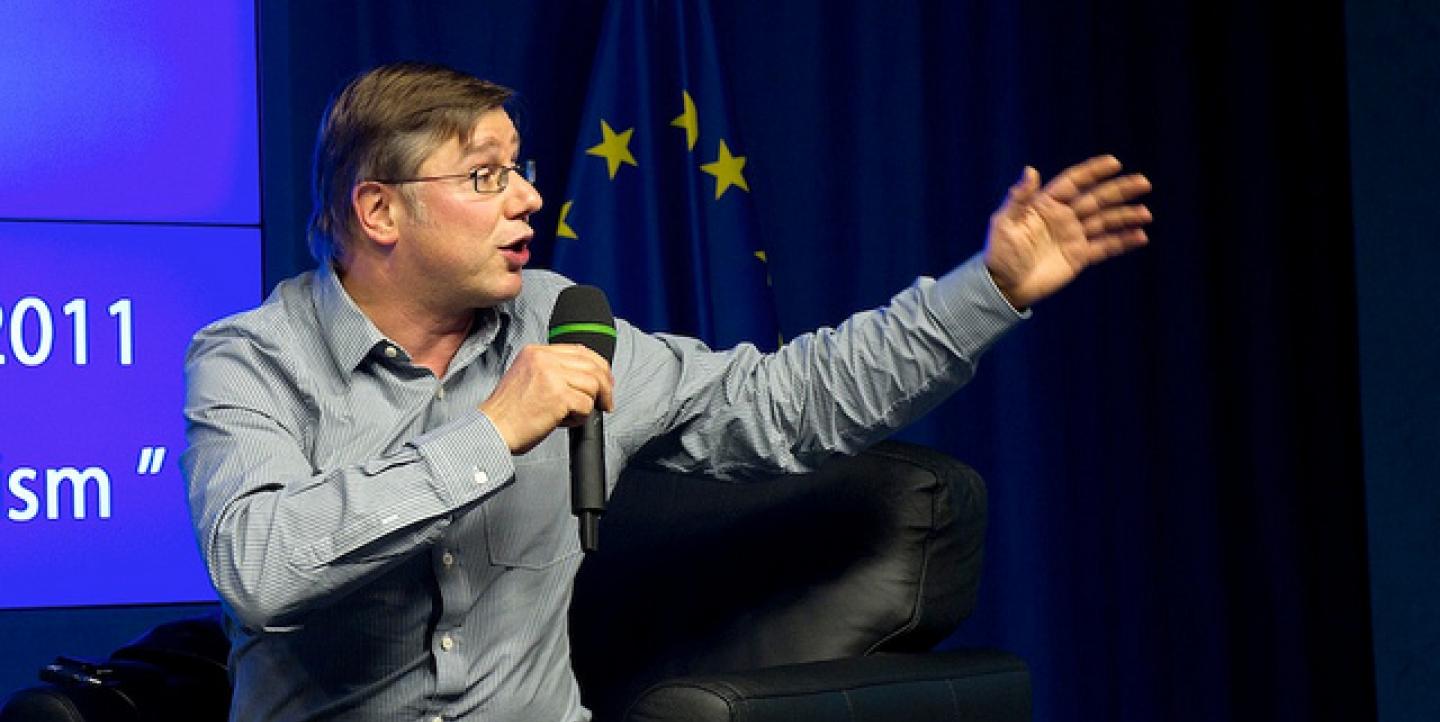A veteran journalist uses his blog to "scoop" the publication he works for by publishing stories they won't.
"I can take something, publish it on my blog, then to Facebook and Twitter, to demonstrate to my newspaper that there are people who want to read about the topic," said Libération journalist Jean Quatremer in French.
Quatremer's energetic speech was the highlight in a fairly soporific recent half-day seminar titled "The impact of social media on journalism" held at the press center of the EU Council in Brussels.
His blog posts sometimes inspire his newspaper to publish articles on topics that they first refused, he added. Quatremer is the Brussels-based correspondent for Libération who blogs at Coulisses de Bruxelles, UE, which roughly translates to "Backstage in Brussels, EU."
The seven-speaker seminar panel (all men, most too old to be considered digital natives) spoke mainly about Twitter, occasionally mentioned Facebook but never touched on Google Plus or other platforms.
Quatremer's online moonlighting was commended by at least one other journalist of the 200 or so in attendance.
"Kick them in the ass by doing a blog," said Euronews journalist Chris Burns, formerly at CNN, Bloomberg and the Associated Press. "I think that's an amazing tool that we can all keep in mind."
Quatremer also said that interaction with readers and commenters on the blog give him ideas for articles and contribute to his work.
Work that he thinks should be left in the hands of professionals, not citizen journalists. The technicality of journalistic work makes it hard to get crowdsourced questions over social media, he noted.
"The art of asking questions is part of the journalist's work," he said. "There are not a lot of questions the average citizen could ask someone like (European Central Bank President Jean-Claude) Trichet."
To do the work of a journalist also requires critical ability, which comes from experience and the knowledge required to bring the added value of interpretation to a story.
"Not everyone can be a journalist, just like everyone cannot be a doctor or a lawyer."
You can watch video highlights from the seminar and read tweets from the event here. Quatremer and Burns's remarks are at around the 2:10 mark of the clip on top left.

